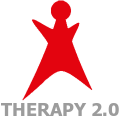Module 3: Characteristics of computer-mediated communication in counselling and therapy
Evelyn Schlenk – Innovation in Learning Institute
- The module explains how new target groups - especially digital natives - can more easily participate in counselling and psychotherapeutic interventions through the use of ICT.
- It will be shown how both external access barriers and internal inhibition thresholds can be overcome by means of ICT.
- Frequent fears of advisors, counsellors and psychotherapists with regard to computer-mediated client relationships are discussed with reference to both scientific research results and practical experience.
- The module concludes with an advocacy for blended approaches in counselling and therapy.
View online the slides from here.
Less- The module explains how new target groups - especially digital natives - can more easily participate in counselling and psychotherapeutic interventions through the use of ICT.
- It will be shown how both external access barriers and internal inhibition thresholds can be overcome by means of ICT.
- Frequent fears of advisors, counsellors and psychotherapists with regard to computer-mediated client relationships are discussed with reference to both scientific research results and practical experience.
- The module concludes with an advocacy for blended approaches in counselling and therapy.
- The module explains how new target groups - especially digital natives - can more easily participate in counselling and psychotherapeutic interventions through the use of ICT.
- It will be shown how both external access barriers and internal inhibition thresholds can be overcome by means of ICT.
- Frequent fears of advisors, counsellors and psychotherapists with regard to computer-mediated client relationships are discussed with reference to both scientific research results and practical experience.
- The module concludes with an advocacy for blended approaches in counselling and therapy.
- What‘s in the news about e-interventions?

- Some questions for you
- The classical experience: personal meetings in a practice room

- Face-to-face scenarios require an adaption of the client
- Bridging of temporal and spatial limitations by means of ICT
- Reduction of organizational access barriers through ICT
- Which user groups are likely to benefit the most?
- Further good reasons for offering also online advice and intervention
- Why are advisors, counsellors and therapists sceptical about?
- Inhibitions of the client to direct, immediate contact with the advisor, counsellor or therapist
- Computer-mediated distance and threshold anxiety
- Sovereignty over the degree of anonymity

- Sovereignty over contact time
- Channel reduction
- How close, honest, coherent and binding is a computer-mediated relationship between client and advisor / counsellor / therapist?
- Closeness in computer-mediated relations
- Openness, especially in text-based counselling / therapy forms
- Higher degree of self-reflection

- Clarity and relief by self-reflection
- Permanent documentation of the consultation process
- Development of a new reflective level
- Try it out and see!
- Reflection on the exercise: the client’s perspective
- Reflection on the exercise: the counsellor’s perspective
- Blended Counselling und Therapy


